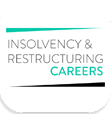As a specialist recruiter with over 11 years experience of working with accountants, we have had many a conversation with accounting professionals at all levels and across different disciplines about their careers and plans for the future.
During this time, we have always found that the biggest crossroads tend to be when people are approaching qualification to become a newly qualified chartered accountant. Having entered the profession as a graduate, trainee accountants tend to be on what could be classed as a pretty straightforward path for the first 3-4 years of their career. Within the larger firms, they generally tend to specialise within a specific accountancy discipline such as audit and as the year’s progress and they pass further exams, the level of responsibility they take on increases.
We have found that during this time there is a real split in how people approach and think about their future careers. Whilst some have very set plans beyond qualification, the majority tend to focus on what they are doing now as the workload and exam pressure can become quite consuming. Once they have a chance to lift their head and look to the future, the natural tendency when thinking about career progression and change is to move away from what they are currently doing with a ‘the grass is always greener on the other side’ approach rather than trying to embrace what they have achieved and where it can take them internally or within another accountancy practice firm in the same discipline.
As a specialist recruiter and career consultant, it is key for us to understand not just what skills they have obtained but to dig deeper and try to gain a better understanding of their personality, what motivates them and where they would like to progress in their career. This then allows us to offer advice and assist them to plan effectively to achieve their short, medium and long term objectives.
“I want to be more commercial!”
Most conversations and meetings we have with potential candidates normally start with:
Candidate: “I want to get out of audit” or “I’m not sure what I want to do but it needs to be something more commercial”
Levitate Recruitment: “OK, why do you feel you need to move away from audit and what would you class as more commercial?”
At this point, we normally receive a blank stare before a few job titles are thrown at us such as, corporate finance executive or working in industry as an analyst or a Financial accountant. When asked why they feel those areas would be more commercial? We have received some great answers but more than often, an answer that hasn’t been considered and one that has no real evidence of why it would be the right move for them in seeking out something ‘more commercial’
We can see why people may initially believe these disciplines are more commercial, they are certainly different to audit but it’s fundamental that people research both areas to gain knowledge of the different types of opportunities that are available, what the day to day duties will be and how the move will improve their CV and develop their skillset further. Once you have done this then you will have a better idea if it really is more commercial than a progressive audit role and if it is in fact the right move for you.
It is also important to understand if a certain move is available at this stage of your career and if not, what do you need to do to improve your chances. This is one of the many reasons why experienced consultants that have worked in accountancy recruitment can be invaluable when people are looking to take the next step. Many newly qualified accountants choose to apply for lots of roles directly and whilst this can be a good way to secure a new role, there is no harm in at least having a conversation with an experienced recruiter that understands the current market as this can not only provide useful insight but also remove the risk of you applying for roles that you will not be considered for at this stage. If it turns out that the move isn’t possible just now then they will be able to assist you in working towards this move within your current role or providing a stepping stone move that will get you closer.
“I made a mistake!”
Whilst many jump ship into industry to get an extra few thousand pounds and a move out of audit, we regularly receive calls from the same people 6 months later to state that the move wasn’t all they thought it would be and whilst they are working for an industry company, the role is anything but commercial. Some will move as analysts and find themselves looking at spreadsheets with no real communication with business leaders and some will move as management or financial accountants and find themselves working on the same accounts every month in a role that has very little impact on business strategy.
Another key factor for people coming back to us to reconsider a career in practice is that they miss the client interaction they were once accustomed to and they often miss the opportunity to work across different sectors and with a whole range of different business sizes that operate in a totally different way. We frequently hear “I didn’t think that working in audit was that commercial or interesting, but I now realise that I learned so much more about different businesses when I was working on-site and interacting with my clients”
This is of course not the same for everyone and many people do make immediate moves into industry that work for them. Below we have provided a few points to consider that may assist you to make the decision to further your career within practice first.
Legacy & Time invested within your current firm
You have worked long hours and developed goodwill within your current firm – Try to take advantage of this and sit down with your managers and directors to discuss a career plan that will take you further – They will more likely be open to investing in you than a new person joining and as someone that is more senior, they can hopefully educate on the different options that will also work for the firm. One of the hardest parts of running a successful business is to attract and retain good staff that are motivated to assist the business to move forward. Why not try to utilise your commitment and loyalty as a strength to either push on within your current specialism or move across to another area of the business to gain further skills.
Change Specialism
There is the obvious choice to push on within your current specialism but if this is something you really don’t wish to do then why not ask about other areas of the firm that you can work in. It is important to do your research first. This should include looking at all areas of the business and taking the opportunity to speak with people in these departments to understand what they do and what they enjoy about their roles. Once you have done this then ask the question! If it isn’t available then perhaps another great accountancy practice down the road can make it available?
Further training and a structured career path
It is well known that accountancy firms can offer further training and a structured career path. This is not often the case when moving into industry as many firms do not embrace or feel there is a need for further training. Depending on the size of the firm, there may only also be a few steps up that you can take and you, therefore, see yourself sitting in the same role for quite a long time which means you then need to make another move to push forward. Accountancy departments are just one part of their business and as a cost to the business, rather than a revenue generator, it is often the area that receives less investment in training and development. We also find that there can be a big gap between the newly qualified roles and FC/FD roles which normally means they recruit someone more experienced into the business above you.
Same firm – New Opportunity
Working as a newly qualified accountant within practice also means that you have now dropped the exam pressure that was hanging over your head. You are most likely about to receive a promotion and pay rise where your role will gradually begin to change and your responsibilities will give you more feeling of importance and value to the firm. Try to embrace this chance as a new start in the business where you can build on your knowledge and focus on the next step. Setting timelines and objectives for promotion is certainly more manageable within a practice structure and most firms will provide 2 years programmes for you to take the next step up. You can make slightly more money stepping into industry at a newly qualified level but the rise in salary and opportunity to push to manager will generally happen quicker in a practice firm due to the structure and 2 yearly promotion cycles. Once this does happen, you will see the salary level jump up much quicker each time. We also find that those that have had further training and decided to move into industry at manager level are more than likely going in at a higher level than their peers that may have left at NQ level.
Candidate Pool & Competition for jobs
As external audit is a specialist area, accountancy firms are unable to hire just any qualified accountant. They need people that have relevant experience in audit within certain sectors and people that have years of experience in working with a range of reporting standards. Since the day I started recruiting in practice (over 10 years ago) there has always been a shortage of experienced auditors both in the UK & overseas, which means there is a great opportunity for you to capitalise on this and push on into a more senior role.
Within industry, this is a totally different scenario! Yes, there are roles available for NQs to secure but the competition for these roles is extremely high. You will be up against people from all different backgrounds that have worked in different firm environments and within different sectors. Many of the larger FTSE firms will have some criteria based on the career path they have followed and will generally seek out Big 4 trained professionals or those with a specific sector background.
You will also find you are not only up against newly qualified individuals from practice but a much larger candidate pool of people that have either trained in industry or those that have already made the move and now have industry experience. As an employer looking to make the best hire, it is much easier to take a safer bet and employ someone that already has industry experience and is settled in that environment rather than a practice first-time mover who hasn’t had this experience and may require some further on the job training.
Touching on the point above: Remaining with your current employer where you have built a legacy and proven loyalty will generally be respected and rewarded. If you are making a move into industry with a new employer then building loyalty and trust is back to the start.
Moving to another practice firm
For some of the people we speak with about their next step, it needs to be totally different. They need a change as they really do not enjoy the area of accountancy they are working in. Some leave accountancy altogether as they realised early on that it wasn’t for them but didn’t wish to lose the time they had invested in working towards the qualification. Others that need a change will often work out that it’s not the work that is making them unhappy and clambering for change but the environment they are working in or the people they are surrounded by. Some are unable to work this out for themselves so you must take time to consider the pros and cons of your role so that you can understand what it is that makes you unsettled. If you are struggling with this then speak with a specialist recruiter who can assist you to break down what you do and don’t enjoy.
A move to a new firm and role provides a new start and is often viewed as an opportunity for you to shine and progress. As an experienced consultant, We will always advise everyone we speak with to sit down and speak with their current firm about their career path and what is on offer as it’s impossible to make an educated decision if this hasn’t been explored. If we are being totally honest, it’s also a way of protecting our time as firms do not wish to lose employees and 9 times out of 10 will sit down with their employees after they have tendered resignation to work out what they can do to keep them before providing a counteroffer to keep them. It is always the first place to start when considering options but we will also advise people to at least consider speaking with other firms at the same time so that they can get a better view of what else is on offer and how this compares to what is available within their current firm. Those that do this can then confidently move forward in their career knowing they have researched and considered all options before making a commitment.
Working Overseas
Achieving ACA or ACCA status means you can literally work anywhere in the world that recruit’s accountants. Most of the major International cities will have the same Top accountancy firms you would expect to see in the UK. If they don’t then there will most certainly be some kind of affiliation to one that you know. As in the UK, qualified accountants from a practice background are always in high demand and there is no better time to make an international move than at the newly qualified stage as this is when you are viewed as being ‘the most flexible’. Moving at a later stage in your career is still possible but there will always be fewer opportunities to consider. We also find that the older someone gets then the less likely an International move will be as their situation changes and can sometimes dictate available options.
Making an International move in industry is possible but is less likely if you do not have prior industry experience. As a recruiter that has assisted people to move all over the world to places such as Australia, New Zealand, The Caribbean, Canada, Luxembourg, Switzerland and South Africa, we have never once spoken with a newly qualified accountant from practice that has successfully made this international move without travelling over to work in a practice firm first. My advice is to make a move for a minimum of 12 months in a similar practice role and then make the move into industry. This way, you will have more locations & opportunities to consider, the move will be smoother as you are doing something you know and you will also have a chance to gain an understanding of any differences there are in accounting rules and processes whilst working with a wide range of specialist accountants.
As a specialist recruiter for accountancy practice roles, we will of course lean towards remaining in practice as a great option. We have seen the benefits of further training and career progression and witnessed people progress from newly qualified to Director and Partner level. Whilst this is the case, Industry also offers people great opportunities and we have also seen many people make great moves where they have progressed to FD and even CEO.
If you are unsure about your next step then we are always here to assist and provide advice. It may be that you want to consider both options and if this is the case then the best option is to also speak with recruiters that specialise in industry roles and try to meet with several firms that can offer you a different outlook on how your career can progress and develop. If you do your research and take your time then hopefully whichever way you go will be the right direction for you.
Career decisions are some of the most important life changes you will ever make. Let us help.
For advice about your career options, speak to Scott Lowes at Levitate Recruitment, specialists in placing practice-trained accountants and insolvency professionals across the UK, and find the right role to suit your ambitions.







